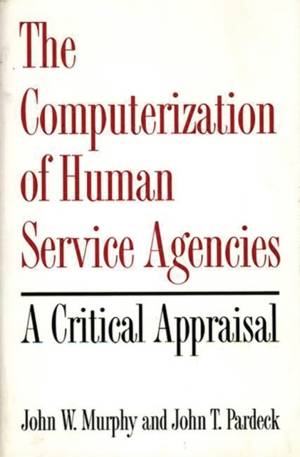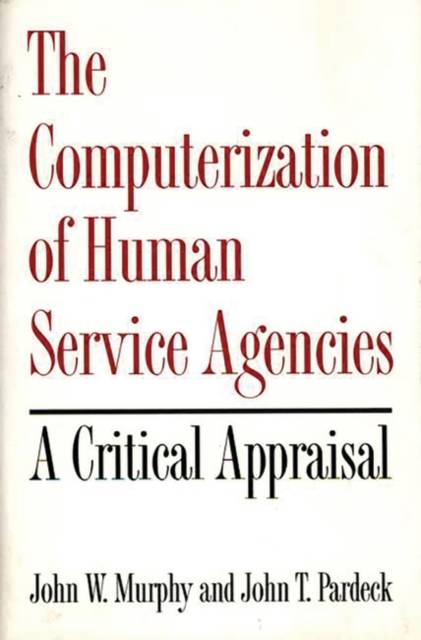
- Afhalen na 1 uur in een winkel met voorraad
- Gratis thuislevering in België vanaf € 30
- Ruim aanbod met 7 miljoen producten
- Afhalen na 1 uur in een winkel met voorraad
- Gratis thuislevering in België vanaf € 30
- Ruim aanbod met 7 miljoen producten
Zoeken
The Computerization of Human Service Agencies
A Critical Appraisal
John W Murphy, John T Ph D Pardeck
Hardcover | Engels
€ 127,45
+ 254 punten
Omschrijving
This work serves as an introduction to both the theoretical and practical aspects of using computers to improve the delivery of social services. Though many practitioners believe that computerization dehumanizes clients and should be avoided, John Murphy and John Pardeck demonstrate how, through a holistic approach to computer use, this problem, and others like it, can be averted. By providing practitioners the opportunity to sharpen their conceptual skills in computer technology, this book promotes a rational understanding of the possible uses and limitations of computers in social service agencies.
Unlike other, technically-oriented works in this field, Murphy and Pardeck's work focuses on the philosophical justification of computer use, along with the conceptual or symbolic nature of computerization. They fully illustrate how to create the organizational conditions necessary for computers to improve social-service delivery, and they do so in a manner that is easily accessible for both general classroom and professional use. Among the topics addressed are the technological world-view, Western philosophy, and knowledge; computer mediated therapy; ethical issues related to computerized service delivery; and construction of a socially responsible technology. This work will be a unique and important resource for courses in computer applications, policy analysis, and social service administration, as well as a useful reference source for human service agencies and practitioners. Public and academic libraries will also find it to be a valuable addition to their collections.Specificaties
Betrokkenen
- Auteur(s):
- Uitgeverij:
Inhoud
- Aantal bladzijden:
- 184
- Taal:
- Engels
Eigenschappen
- Productcode (EAN):
- 9780865690233
- Verschijningsdatum:
- 30/03/1991
- Uitvoering:
- Hardcover
- Formaat:
- Genaaid
- Afmetingen:
- 140 mm x 216 mm
- Gewicht:
- 390 g

Alleen bij Standaard Boekhandel
+ 254 punten op je klantenkaart van Standaard Boekhandel
Beoordelingen
We publiceren alleen reviews die voldoen aan de voorwaarden voor reviews. Bekijk onze voorwaarden voor reviews.











